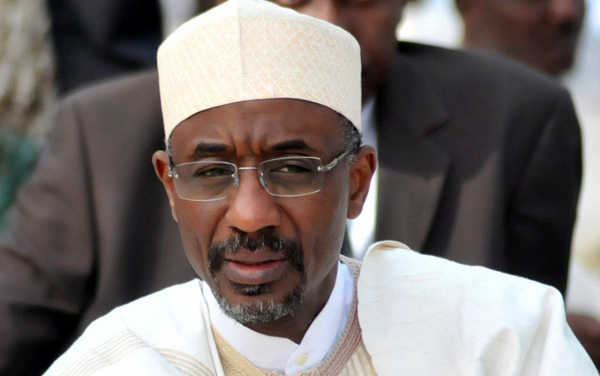News filtering in about the purported suspension of the Governor of the Central Bank of Nigeria, Mallam Sanusi Lamido Sanusi, by the President is the most egregious desecration of the rule of law and the principle of legality in Nigeria to date. It is unsurpassed in its blatant illegality and immorality.
The decision is symptomatic of the desperation that has gripped the presidency and its allies in the wake of the troubling allegations made by the Governor of the Bank that public officials in the NNPC are looting the country blind in the name of subsidy payments. To the best of my knowledge the allegation has not been coherently answered by the Corporation or by the Government.
As far as the law goes, the purported suspension of the Governor is unwarranted. Section 11 of the Central Bank of Nigeria Act, 2007 clearly lists the instances when the Governor or any of his Deputies can cease to remain in office. For the avoidance of any doubt whatsoever, none of such instances include suspension by the President.
The only mention of the word ‘suspension’ is in section 11(1)(d) and that relates to the removal of the Governor when he or she is disqualified or suspended from practicing his or her profession in Nigeria. Of course, the illegal suspension of the Governor is not from a professional body and is not at all contemplated by the law.
It should be pointed out that the only occasion the President can recommend the removal of the Governor or exercise any disciplinary control over him is under section 11(1)(f) and that recommendation must be supported by two-thirds majority of the Senate before he can be removed. Now the law is indubitably clear that the express mention of one thing is the exclusion of the other. In other words, if the law had intended that the President exercises the power of suspension over the Governor of the Central Bank it would have expressly stated so, particularly as the same law provides for the removal of the Governor based on his suspension from professional practice.
For the avoidance of any doubt, the entire provision of section 11 of the CBN Act goes thus:
CESSATION OF CBN GOVERNOR’s OFFICE
11. Disqualification and cessation of appointment.
(1) A person shall not remain a Governor, Deputy Governor or Director of the Bank if he is-
(a) a member of any Federal or State legislative house; or
(b) a Director, officer or employee of any bank licensed under the Banks and Other Financial Institutions Act.
(2) The Governor, Deputy Governor or Director shall cease to hold office in the Bank if he-
(a) becomes of unsound mind or, owing to ill-health, is incapable of carrying out his duties;
(b) is convicted of any criminal offence by a court of competent jurisdiction except for traffic offences or contempt proceedings arising in connection with the execution or intended execution of any power or duty conferred under this Act or the Banks and Other Financial Institutions Act;
(c) is guilty of a serious misconduct in relation to his duties under this Act ;
(d) is disqualified or suspended from practising his profession in Nigeria by order of a competent authority made in respect of him personally;
(e) becomes bankrupt;
(f) is removed by the President:
Provided that the removal of the Governor shall be supported by two-thirds majority of the Senate praying that he be so removed.
(3) The Governor or any Deputy Governor may resign his Office by giving at least three months’ notice in writing to the President of his intention to do so and any Director may similarly resign by giving at least one months’ notice in writing to the President of his intention to do so.
(4) If the Governor, any Deputy Governor or Director of the Bank dies, resigns or otherwise vacates his Office before the expiry of the term for which he has been appointed, there shall be appointed a fit and proper person to take his place on the Board for the unexpired period of the term of appointment in the first instance if the vacancy is that of-
(a) the Governor or a Deputy Governor, the appointment shall be made in the manner prescribed by section 8 (1) and (2) of this Act; and
(b) any Director, the appointment shall be made in the manner prescribed by section 10 (1) and (2) of this Act.
The purported removal of the Governor of the Central Bank is a continuation of the atrocious illegalities perpetrated by the present administration. From Salami to the serial acts of infamy imposed on the people of Rivers State and now to Sanusi, one can say without any fear of equivocation that the cup of illegalities of this administration is full.
If we don’t act now, we don’t know whose turn it would be next. We must challenge the desecration of the laws of our country by its Chief custodian. The Senate must view the so-called suspension of the Governor for what it is: a naked usurpation of its powers and privileges. There is no room for illegal removal of the Governor through the back door.
The Nigeria Bar Association now has an opportunity to redeem whatever is left of its image by demanding that the Attorney General of the Federation who is deemed to be privy to this embarrassing decision step aside or is declared persona non grata. The people and in particular the civil society must ensure that this latest rape of our laws does not stand.


